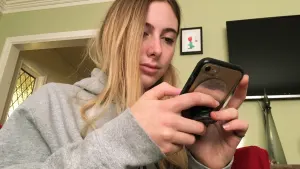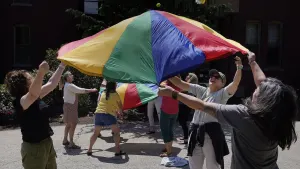More Stories
An advisory panel for the Food and Drug Administration overwhelmingly voted to recommend emergency use authorization for the COVID-19 vaccine.
Dr. Sharon Nachman, chief of the Division of Pediatric Infectious Diseases of the Office of Clinical Trials at Stony Brook Medicine, says the decision was absolutely the right one.
"I think these shots are effective, well tolerated and will actually enable us to get to herd immunity," Nachman says.
She says 25% of our population is children, so without vaccinating them we cannot fully protect everyone from the virus.
Nachman says myocarditis was four in 100,000 for children in the Pfizer study, but there is still a greater risk from getting COVID-19.
"When we hear the word inflammation of the heart, we get scared, but the type of inflammation, and the length it lasts and how severe it is completely different when we think about vaccination than versus infection," Nachman says.
New rules for international travel will end a ban that has been in place for many visitors since the start of the pandemic.
Beginning Nov. 8, most non-citizens and non-immigrants arriving by air will have to show proof of vaccination and proof of a negative COVID-19 test taken at least three days before departure.
Unvaccinated travelers will have to provide a result taken within one day of departure.
Dr. Steve Valassis, chair of Emergency Medicine at Hartford Health Care of St. Vincent's Medical Center, says it safer to travel now than at any other point in the pandemic.
"There's vaccinations throughout the world in great numbers," Valassis says. "We still need to do better, but we're at a very different place now then we were before."
He says the new rules are following the science by looking at people who have protected through vaccinations and screening them to make it even safer.
More from News 12
1:28

5 simple steps for long-term benefits to your health and heart
1:32

8 tips for working safely during hot weather
3:31

Guide: Ways to set your child up for financial success
3:18

Guide: The importance of good sleep and how to get it

Guide: Mental health resources available in the tri-state
9:36
